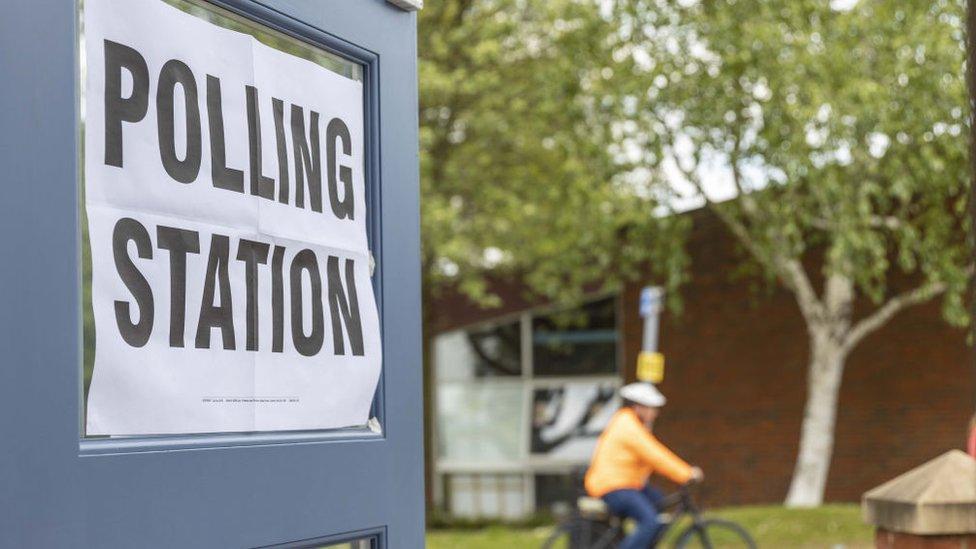Local elections 2023: Fears voter ID will cut Barnsley turnout to new low
- Published
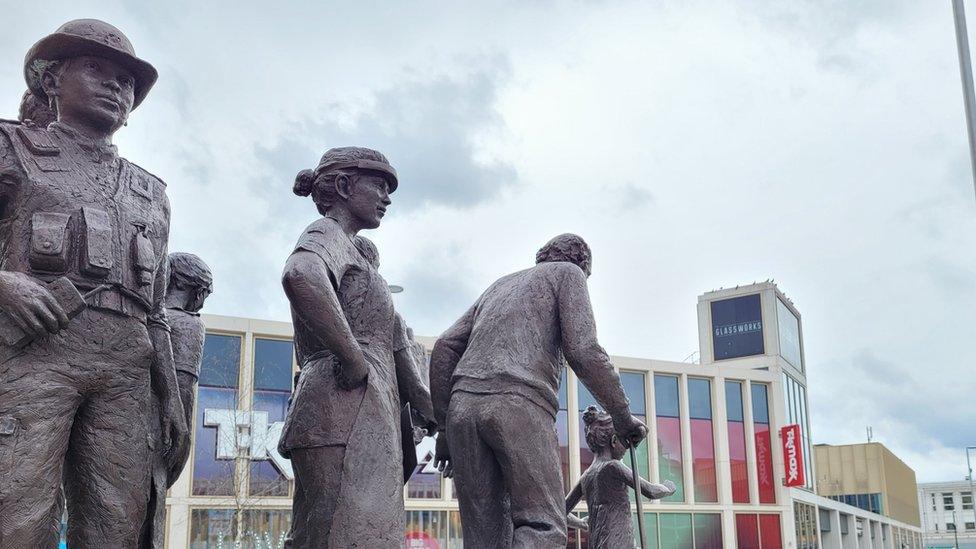
Barnsley has historically recorded low election turnout
Only a quarter of eligible voters in Barnsley took part in last year's local elections, in one of the lowest turnouts in the country. Councillors campaigning for 4 May's polls fear participation will fall even further as new voter ID requirements are introduced.
Steven Broadhead has never voted and does not plan to start now. The 44-year-old was made redundant from his job at a steelworks in January after losing a toe to diabetes.
He has struggled to access benefits and says he feels "let down" by the system.
His apathy about the ballot box runs deeper than his recent problems, however. His parents do not vote and nor does his partner.
"To be honest with you, I couldn't give you just one reason," he told the BBC. "I just can't be bothered. What difference would it make?"
It is a sentiment you will hear again and again if you speak to enough people in Barnsley. The South Yorkshire town has consistently recorded one the lowest turnouts in England in recent polls, according to Electoral Commission data.
Barnsley Council said just over 25% of the electorate cast a vote in the May 2022 local elections.
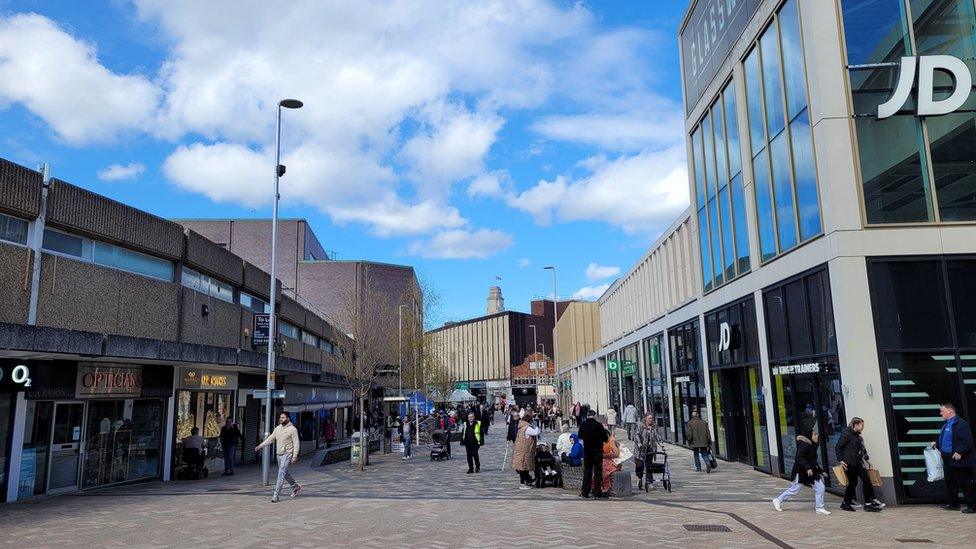
Only one in four voters in Barnsley took part in the last election
Some councillors campaigning for the next round of polls fear participation will sink even lower due to the introduction of compulsory voter ID. For the first time, everyone voting in person in English local elections on 4 May will need to bring photo identification.
"We're expecting a reduced turnout as a result of it," said Sir Stephen Houghton, the Labour leader of Barnsley Council. "It's not easy getting young people out to vote on normal occasions and they tend to be the ones who don't have a passport or a driving licence, so the danger is it will shift the demographics on voting."
Compulsory voter ID has been introduced by the Conservative-led government to "protect the integrity of the ballot box" against the perceived risk of voter fraud.
But critics say it will make it harder for people to take part in the election and have warned eligible voters could be turned away at polling stations.
It is thought one million eligible voters do not currently have accepted forms of photo ID.
People who do not have the right ID can apply to their council for a free document - a "voter authority certificate" - that will permit them to vote, but uptake has been slow. A week before the 25 April deadline to apply, Barnsley Council had issued 302 of the documents.
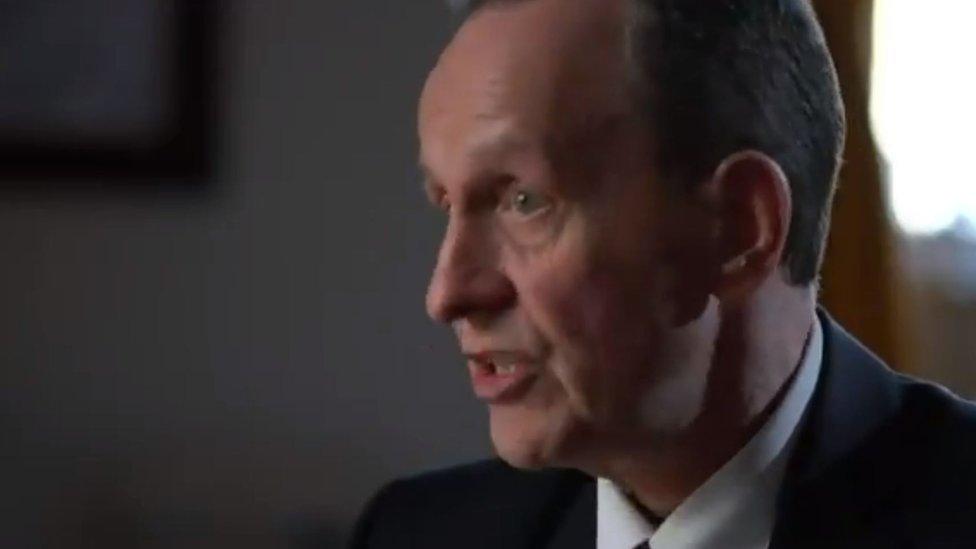
Barnsley Council's Labour leader Sir Stephen Houghton says he is expecting a reduced turnout
Hannah Kitching, the leader of Barnsley's Liberal Democrat opposition group, said she also expected turnout to be down on 4 May.
She told the BBC: "In those wards where turnout is already low, people are not massively motivated to vote, and it's just an extra hurdle to get people to the polling station.
"If people want to pop into the polling station on the way home and then get turned away for not having photo ID on them, I can't see those people going back."
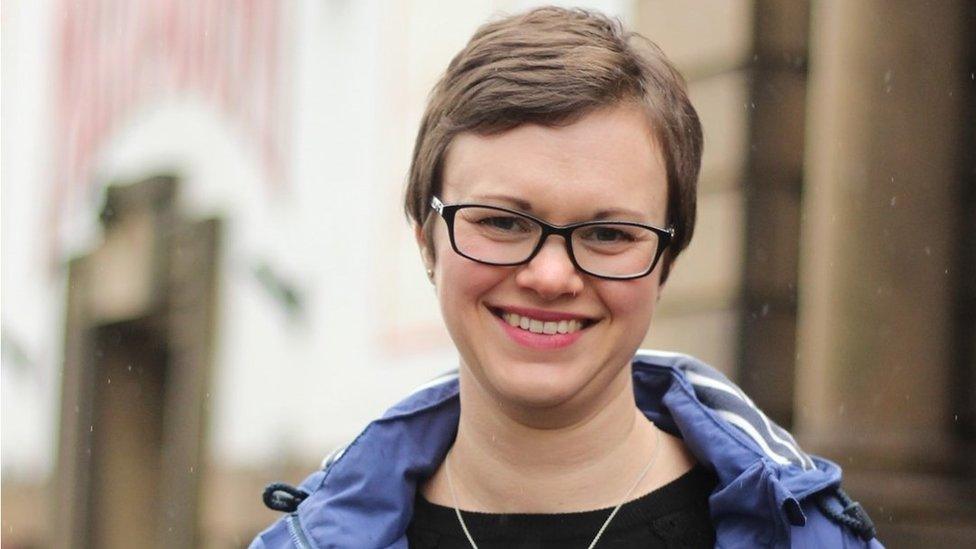
Barnsley Lib Dem leader Hannah Kitching said she was concerned voter ID would have an impact on turnout
But Andrew Gillis, leader of the Barnsley Independents group, said he thought compulsory photo ID was a "good idea".
"There aren't many people without ID these days," said the councillor, who is standing down on 4 May. "There might be a few that get turned away this time because they haven't read the literature, but Barnsley Council have done their utmost to support people on what to do."
The Electoral Commission has been running a campaign since February to alert voters to the change, with leaflets about voter ID dropping through doors alongside polling cards.
But the message has not got through to everyone. Twenty-four per cent of people were still unaware they would need ID to vote, according to the commission's latest research, published last week.
"This is the first I've heard of it. Not a clue," said Jordan Naylor, 29, when asked by the BBC if he knew about the need for voter ID.
The kitchen worker, speaking during a break from his job at a Barnsley town centre restaurant, said he was "not very political" and last voted about 10 years ago.
He added: "I don't take much interest in it. If I got something through the door it probably went straight in the bin."
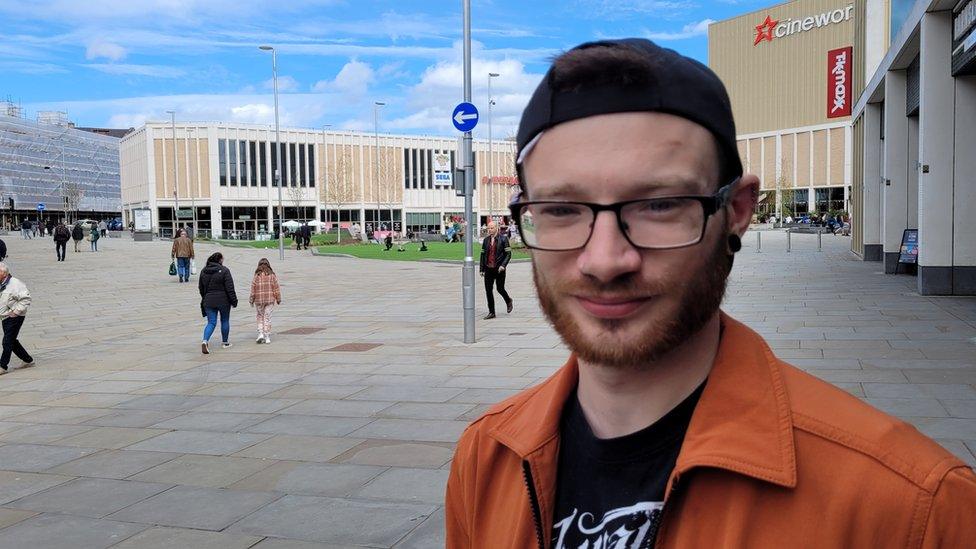
Jordan Naylor said he had no idea about the need for voter ID
Roy Humphreys, 74, said he had been trying to alert people to the change through the Neighbourhood Watch group he runs.
He said: "A lot of people don't seem to be aware and I think it will cause problems. I don't think it's been advertised enough."
Many members of the public the BBC spoke to said they were aware of the need for ID in the upcoming election, although some said it would make them even less likely to vote.
Market trader Anne Sutcliffe, 79, said: "I can't see why it would be a problem. It might put some people off but I think it's something people will get used to."
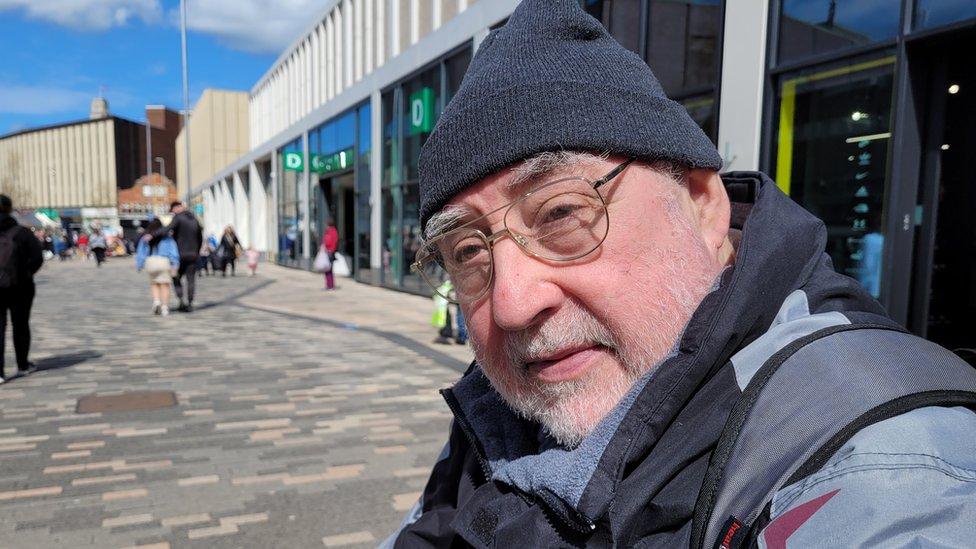
Roy Humphreys said he had been alerting people to the need for ID
Sir Stephen said he had seen "a lot of discontent on the doorstep as we've been out door-knocking".
He added: "It's the extra burden, so to speak, and the principle of having to identify yourself in that way. There's a lot of resentment from people."
The Conservative government has accused opposition parties of "playing politics" with the issue of voter ID. Local government minister Lee Rowley suggested a number of those without the required proof "will have chosen never to have voted" anyway.
But Charles Pattie, a politics professor and elections specialist at the University of Sheffield, said he believed councillors were "right to be concerned about a potential drop in turnout".
He said it was unlikely there would be a "massive fall" but that less affluent areas like Barnsley were "particularly vulnerable" to the impact of any barriers to voting.
"At the margin, the more inconvenient the arrangements for voting are, the more likely it is that some potential voters will just decide not to bother," he added.

Follow BBC Yorkshire on Facebook, external, Twitter, external and Instagram, external. Send your story ideas to yorkslincs.news@bbc.co.uk, external.
Related topics
- Published29 April
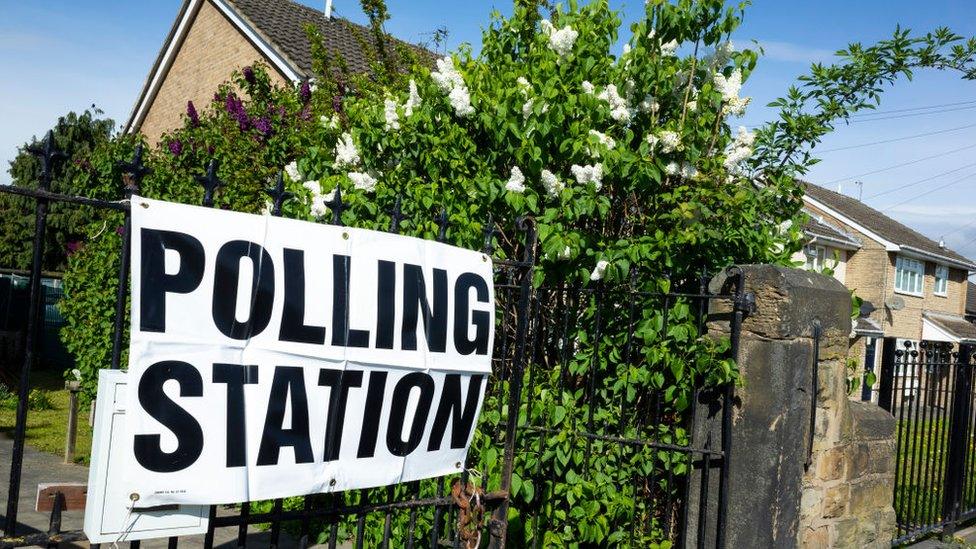
- Published3 May 2023

- Published14 April 2023
